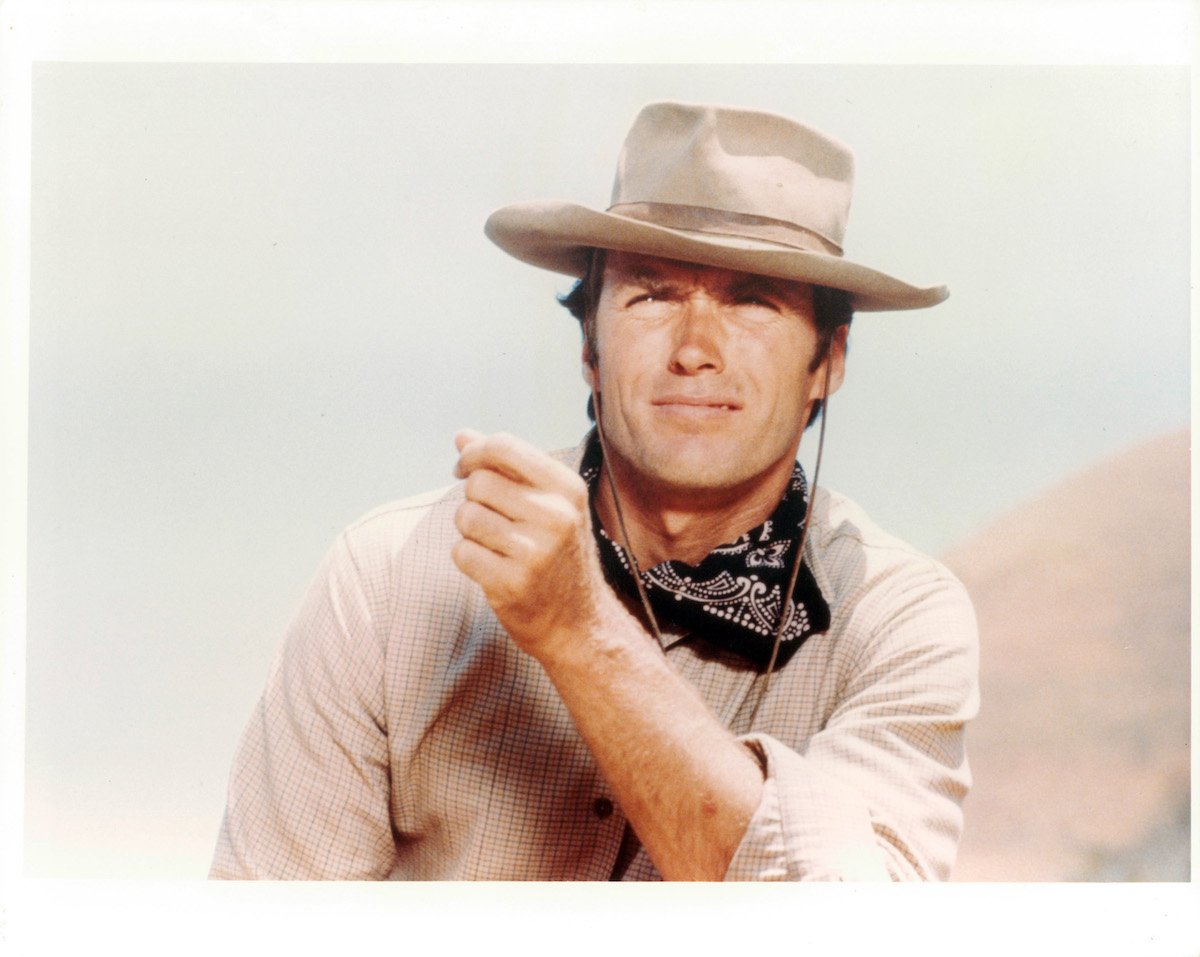A Young Clint Eastwood Was Only Paid $15,000 for a Film That Defines Spaghetti Westerns
Clint Eastwood might now be an Oscar-winning director who defies any connection to a particular role or genre, but deep down inside, he’s still known as America’s favorite cowboy. Much of this has to do with Sergio Leone’s acclaimed Dollars trilogy, a film that kicked off Eastwood’s most iconic western franchise. However, at the time of its inception, Eastwood was a b-list television actor who did not get paid much to appear in the role. It paid off significantly after its release.

A fistful of chump change
When Leone got the greenlight on A Fistful of Dollars, he envisioned the leading cowboy, an unnamed, soft-spoken cowboy, as a Hollywood leading man. After Henry Fonda passed and the studio balked at James Coburn’s $25,000 demand, they looked to Charles Bronson. Bronson read the script and later told reporters that it was one of the worst he ever saw.
With stars declining, Leone looked to television for his leading man. For seven years, Eastwood was on the American cowboy series Rawhide. While watching the series, Leone found his leading man. He offered Eastwood $15,000 to play the film’s nameless lead, and neither of their careers was the same after that.
The franchise helped to propel the spaghetti western genre to the mainstream. Historically, western iconography has been an American affair. Spaghetti westerns, which are named for their Italian roots, became a craze that now defines a particular brand of stylish western that seems more theatrical and ramped up than a John Ford film.
The results of this spoke for themselves. While the entire trilogy is a classic in most film circles, the final film, The Good, the Bad, and The Ugly, is consistently held up as one of the greatest films of all time. Its impact on the film industry is still felt to this day. Eastwood even credits Leone for changing his career for the better, too.
The legends are born
The Dollars trilogy remains one of the most iconic moments in movie history. To this day, Eastwood credits it with helping to propel his career to a whole new level. He spoke about their relationship in a career retrospective for Empire magazine.
“Sergio was terrific for me,” Eastwood told the magazine. “I was this young man, having done three years on Rawhide, with an Italian director who spoke no English. I thought it was insanity and that insanity was intriguing for me.”
That insanity paid off. Eastwood and Leone shared many of the same sentiments that helped the partnership work. Drawing on their love of the western genre, they worked together to create a brand new twist on the genre that changed it to this very day.
“I was a big fan of John Ford, and Sergio was too, but his approach was so different: he had no restrictions, he’d kind of go off and do what he wanted even if it was somewhat satirical. It was certainly different from me.”
Now, A Fistful of Dollars is a classic of the genre. However, the film’s success is not just a testament to Leone. According to Leone himself, Eastwood needs some credit, too.
Leone on Eastwood
Leone’s impact on Eastwood’s life and career was a two-way street. While it’s true that the director’s Dollars’ trilogy helped Eastwood kick off a career that’s still going six decades later, Eastwood also helped Leone become the acclaimed name that he is today. When asked about Eastwood in an interview in the 1980s, Leone spoke of his potential.
“The story is told that when Michelangelo was asked what he had seen in the one particular block of marble, which he chose among hundreds of others, he replied that he saw Moses,” Leone said in an interview collected by Scraps from the Loft. “I would offer the same answer to your question—only backward. When they ask me what I ever saw in Clint Eastwood… reply that what I saw, simply, was a block of marble.”
It took the right combination of luck, talent, and happenstance to make the Dollars trilogy the iconic franchise it is today. However, through all of the turmoil between actors, it certified the Spaghetti western and gave way to nearly every cowboy film that’s taken the screen since then. While Eastwood might not have made a lot of money on the film, he’s made up for it with one of the longest Hollywood careers in history. Now more of a director, too, still uses the lessons he learned from the Italian director who helped propel him.


